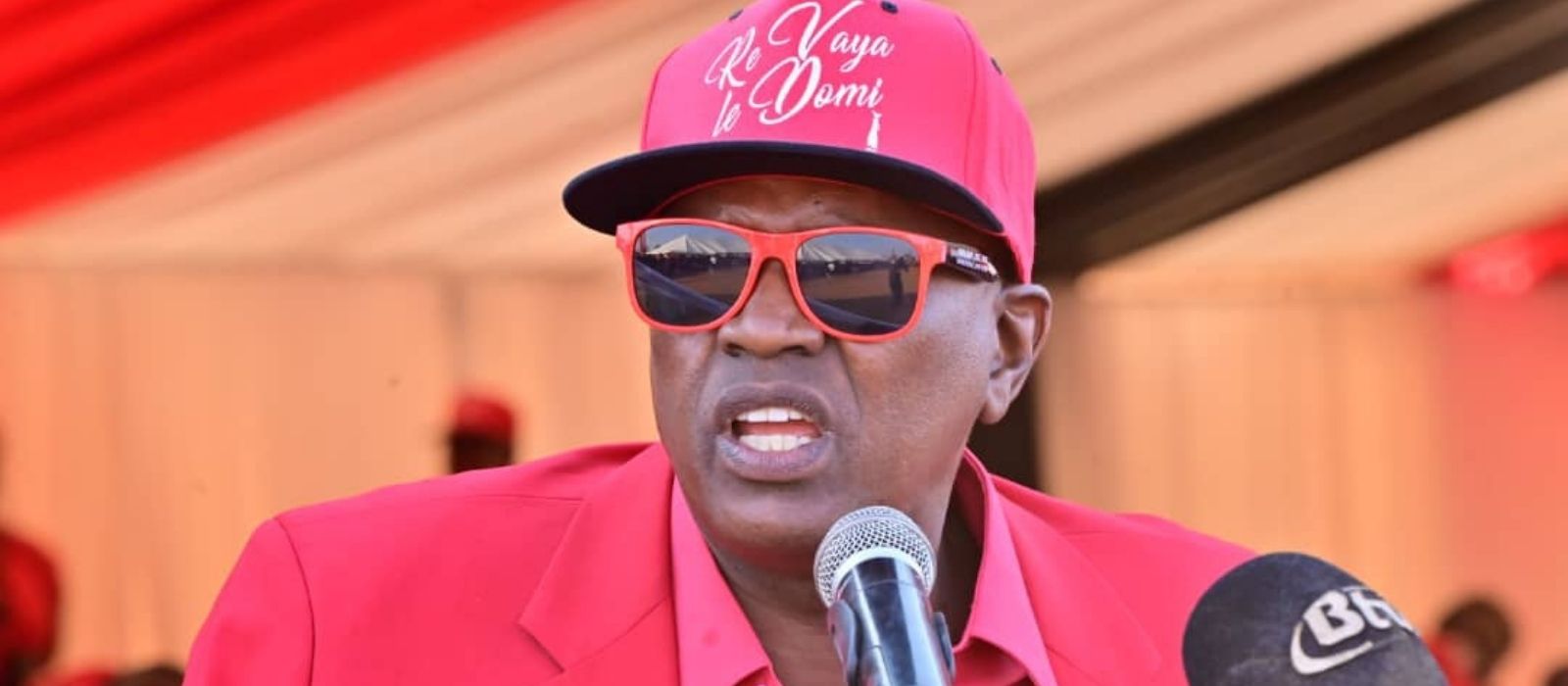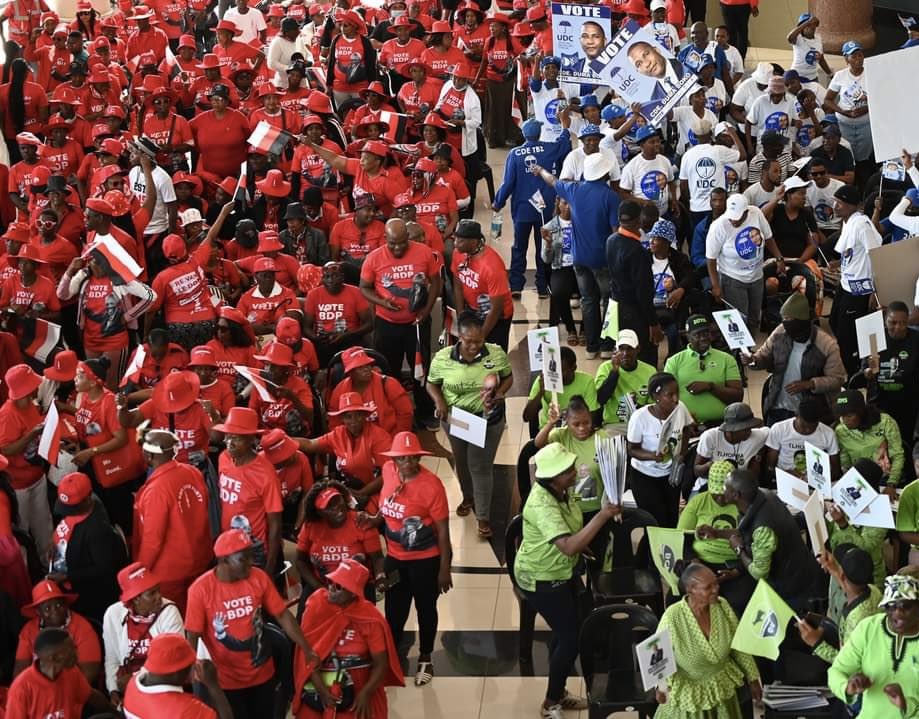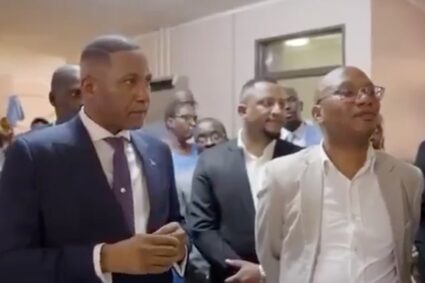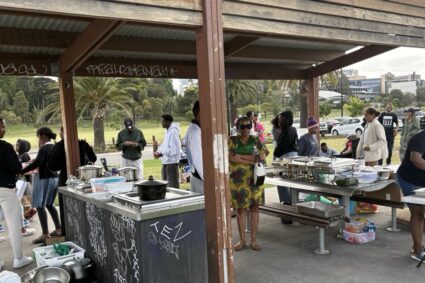
Botswana, the Southern Africa nation is headed for elections later this month, I have decided to zoom in on the efforts of the government Under the leadership of President Mokgweetsi Masisi Botswana has embarked on an ambitious journey to transform its economy and elevate its standing as a high-income nation by 2036.
With two primary guiding frameworks — Vision 2036 and the Reset Agenda — Masisi has outlined a comprehensive plan to foster sustainable development, create jobs, and improve the quality of life for all Batswana. However, for these bold initiatives to fully take root, it is essential that Masisi remains at the helm to ensure continuity in leadership and policy implementation. Botswana can draw lessons from neighbouring countries such as Zimbabwe and South Africa, where continuity in presidential leadership has proven critical for economic reform and future growth.
Vision 2036 is Botswana’s long-term development strategy, launched in 2016, with the overarching goal of transforming the country into a high-income economy by 2036. The vision builds on the foundations laid by Vision 2016, but it takes a broader and more ambitious approach to ensuring prosperity, inclusive growth, and environmental sustainability. The vision is centered on four main pillars:
Sustainable Economic Development: Diversifying the economy is a cornerstone of Vision 2036. Botswana seeks to reduce its dependency on diamond mining and develop sectors like manufacturing, tourism, agriculture, and technology. The aim is to create an inclusive, diversified economy that is competitive on the global stage.
Human and Social Development: Botswana aims to improve the quality of life for its citizens by ensuring access to quality healthcare, education, and social services. A well-educated and healthy population is seen as a critical driver for economic growth.
Sustainable Environment: Vision 2036 emphasizes environmental sustainability by ensuring that Botswana’s natural resources are managed and utilized responsibly. This is particularly important given the country’s dependence on natural resources like wildlife, minerals, and arable land.
Governance, Peace, and Security: Building on Botswana’s reputation as one of Africa’s most stable democracies, Vision 2036 promotes good governance, accountability, and transparency, which are essential for achieving long-term development goals.
In 2021, President Masisi introduced the Reset Agenda, a focused, short-term strategy aimed at helping Botswana recover from the economic shocks of the COVID-19 pandemic while accelerating reforms needed to meet the long-term goals of Vision 2036. The Reset Agenda is a response to both local and global challenges, ensuring that Botswana can recover from the pandemic while remaining on track to achieve its development ambitions.
The Reset Agenda consists of five main priorities:
1. Saving the Economy: The immediate priority is to support businesses affected by the pandemic, create jobs, and stimulate productivity in key sectors like agriculture, manufacturing, and tourism. Masisi has implemented stimulus packages to safeguard jobs and keep businesses afloat during the economic downturn.
2. Digitization and Technological Advancement: The pandemic highlighted the importance of digital transformation. The Reset Agenda focuses on building Botswana’s digital economy, improving ICT infrastructure, and promoting e-governance to enhance service delivery.
3. Human Capital Development: To build a prosperous future, Masisi has prioritized education and skills development. This includes aligning Botswana’s education system with the demands of the 21st-century economy, particularly in areas like technology and innovation.
4. State-Owned Enterprises Reform: State-owned enterprises (SOEs) are crucial to Botswana’s economy, but many have underperformed. The Reset Agenda aims to restructure and revitalize SOEs to ensure they contribute to national development and become more efficient and accountable.
5. Governance and Accountability: Strengthening good governance remains at the heart of Masisi’s Reset Agenda. Transparency, anti-corruption measures, and efficient public administration are central to ensuring that Botswana can effectively execute its ambitious development plans.
Having mentioned the above ,it is in the best interests of Botswana to re-elect President Masisi so as to have continuity for Vision 2036.To realise the bold goals outlined in Vision 2036 and the Reset Agenda, continuity in leadership is critical.Several reasons why President Masisi should be re-elected:
Steady Policy Implementation: Vision 2036 is a long-term roadmap that requires sustained commitment and strategic execution. Masisi has already laid the groundwork for economic reforms, digital transformation, and social development. Re-electing him ensures that these policies can be fully implemented without disruption or policy reversals.
Commitment to Diversification: Under Masisi, Botswana has made significant strides toward economic diversification. Sectors such as agriculture, manufacturing, and tourism have been prioritised as alternatives to the historically dominant diamond industry. Continuity in leadership will allow these initiatives to reach their full potential, securing Botswana’s economic future.
Building on Digital Transformation: The Reset Agenda has focused on digitization, ICT infrastructure, and technological innovation. Re-electing Masisi would ensure that Botswana continues to build its digital economy, making the country more competitive in the global market.
Lessons from Zimbabwe and South Africa: The Importance of Continuity
Botswana can draw important lessons from neighboring Zimbabwe and South Africa, where continuity in leadership has been crucial for economic reform and stability.
Zimbabwe: President Mnangagwa’s Re-Election and Economic Reform.In Zimbabwe, President Emmerson Mnangagwa was re-elected in 2023 after initially taking office in 2017. Despite facing deep economic challenges, Mnangagwa has focused on economic reform and stabilization under his Vision 2030 agenda, which aims to transform Zimbabwe into an upper-middle-income country by 2030. His administration has introduced measures to stabilize the currency, attract foreign investment, and revive the agricultural sector — long considered the backbone of Zimbabwe’s economy.
By ensuring continuity in leadership, Zimbabwe has seen gradual progress in re-engaging with international lenders and boosting agricultural output. Mnangagwa’s re-election allows his government to continue with its reforms, emphasizing the importance of stable leadership in achieving long-term economic goals.
In South Africa, President Cyril Ramaphosa was re-elected as the leader of the African National Congress (ANC), continuing his mandate to lead the country’s economic recovery. Since taking over in 2018, Ramaphosa has introduced the Economic Reconstruction and Recovery Plan (ERRP), focusing on infrastructure development, job creation, and industrialization.
Ramaphosa’s leadership has been essential in tackling the challenges of corruption, governance, and economic stagnation inherited from previous administrations. His re-election has allowed him to continue implementing the Zondo Commission’s recommendations to fight corruption, improve governance, and stabilize state-owned enterprises like Eskom, South Africa’s troubled power utility. Continuity in Ramaphosa’s leadership has been key to maintaining investor confidence and fostering economic growth.
Botswana’s Vision 2036 and the Reset Agenda offer a clear and ambitious pathway to transform the country into a high-income economy. However, achieving these goals requires strong, sustained leadership. President Masisi has demonstrated a deep commitment to driving economic diversification, human capital development, and governance reform, making him the best candidate to lead Botswana forward.
Drawing from the experiences of Zimbabwe and South Africa, where continuity in presidential leadership has enabled both countries to stay the course on economic reforms, Botswana can benefit from re-electing Masisi. His vision and leadership are essential for ensuring that Botswana continues on its path toward prosperity and sustainable growth, fulfilling the promise of Vision 2036 for future generations of Batswana.



